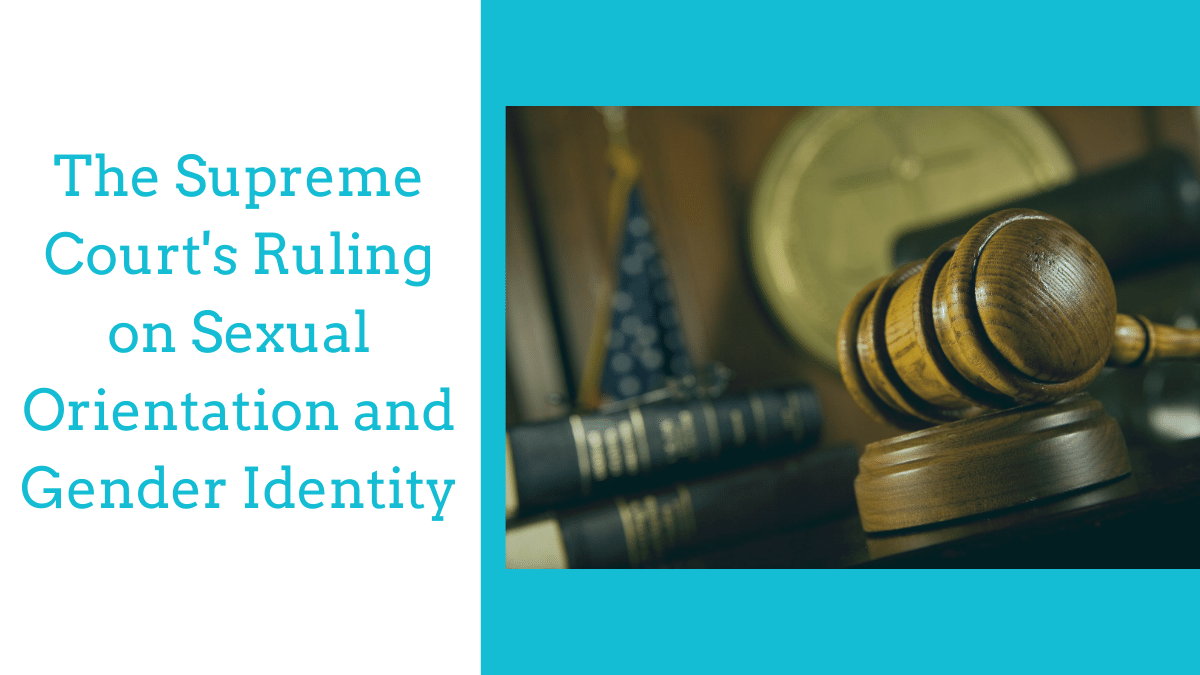Multifamily Blogs
The Supreme Court's Ruling on Sexual Orientation and Gender Identity
The Supreme Court's Ruling on Sexual Orientation and Gender Identity

In a very recent decision, Bostock v. Clayton County, Georgia, 590, U.S. ___ (2020), (“Bostock”) the U.S. Supreme Court expanded its interpretation of Title VII of the Civil Rights Act of 1964, which prohibits employment discrimination. This law prohibits discrimination on the basis of sex, but not explicitly on the basis of sexual orientation or gender identity. The Court has determined in this decision that Title VII’s protection of employees on the basis of sex also protects employees on the basis of sexual orientation and gender identity. Employment discrimination cases are filed and litigated at a much higher rate than housing cases, which is why courts often apply the legal analyses from employment cases to Fair Housing Act cases. This decision is so important to FHI’s Community because like Title VII, the Fair Housing Act also prohibits sex discrimination. Therefore, we can confidently assume that courts in future FHA cases will also extend legal protections to individuals on the basis of sexual orientation and gender identity.
The facts of this case were not disputed and involved the termination of three employees by three different employers. Two employees were fired because they are gay. The third employee was fired because she presented as a male when hired, but later informed her employer she planned to live and work as a woman. The case reached the Supreme Court due to conflicting decisions from three Circuit Courts. The Eleventh Circuit held that Title VII does not prohibit employers from firing employees for being gay, while the Second and Sixth Circuits held that Title VII protects gay and transgender employees.
The basic premise of the Bostock decision is that an employer who fires an employee because the employee is gay or transgender violates Title VII protections because the termination is based at least in part on sex. The Court defines sex as referring only to the biological distinctions between male and female, and then applies a “but for” causation analysis. Under this analysis the Court examines whether the outcome would have happened “but for” the sex of the employee. The Court considers the example of an employer with two employees, both of whom are attracted to men. If the employees are basically the same in all respects except one is a man and the other is a woman, and the employer fires the man because he is attracted to men, the termination is based upon a trait, attraction to males, that is permitted in female employees, but not males. Therefore, the Court reasons, the employee is being fired, at least in part, because of his sex. The Court applies another example for explaining how sex is a factor in cases involving gender identity in which an employer has two otherwise identical employees, both who identify as female, and fires one because that employee identified as male at birth. The Court reviews past Title VII decisions for its conclusion that Title VII prohibits employment actions where “changing the employee’s sex would have yielded a different choice by the employer.”
The Court acknowledges there may be additional issues that the Court will need to address in later cases involving religious freedom and use of locker rooms and bathrooms. Those issues were not involved with this case and will likely rely on different legal issues instead of Title VII.
Many state and local fair housing laws and HUD’s Equal Access regulations (applicable only to HUD insured and subsidized housing) already prohibit housing discrimination against persons due to their sexual orientation and gender identity. However, a large portion of rental properties are not subject to these existing laws. Bostock is so significant because LGBTQ individuals will likely now be protected from housing discrimination throughout our country in all housing covered by the federal Fair Housing Act.
This case highlights the intrinsic value of ongoing Fair Housing training and education. That is why it is so important to keep your team in tune with Fair Housing current events and provide subsequent training for real-world job applications.

